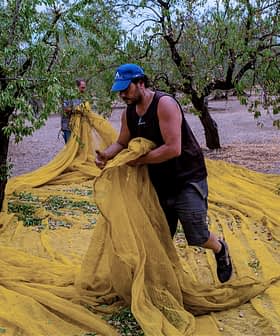Following the European Commission’s introduction of reinforced measures in April to prevent the spread of Xylella fastidiosa which include the destruction of millions of infected trees in Italy’s Apulia region, the European Parliament has called for stronger action.
See Also:Complete Coverage of the Xylella Fastidiosa Outbreak
In a resolution on the “Outbreak of Xylella fastidiosa affecting olive trees” adopted on May 20, 2015, the members of the European Parliament welcome the measures taken by the European Commission imposing restrictions on the import of certain plants into the EU to prevent the spread of the bacteria, but call for stronger action, notably by taking steps to avoid contamination within the EU.
The resolution also urges the European Commission to compensate olive producers for the loss of revenue as a result of the eradication measures introduced and the introduction of incentives for producers implementing preventive measures. Furthermore, the European Commission is asked to improve scientific knowledge of the deadly Xylella fastidiosa bacterium by setting up research institutes.
Other proposed measures include information campaigns in areas of risk, an increase in the number of inspections, and warning travelers about the risk of taking infected plants into the EU.
In a press release by the European People’s Party (EPP), the group made up of elected members of the European Parliament belonging to Christian Democrat parties, Italian MEP (Member of European Parliament) Giovanni La Via, stated: “Thanks to the EPP Group, we have a basis to compensate producers for the eradication measures and loss of revenues, but also to promote intensified research efforts without delay and increase controls in order to detect harmful organisms at points of entry into the EU.”
Meanwhile, María Esther Herranz García, the Spanish MEP responsible for the resolution, pointed to the need for more research: “It is crucial to undertake scientific research on Xylella to find more efficient means to fight against it and reduce the economic impact for producers,” she said.







